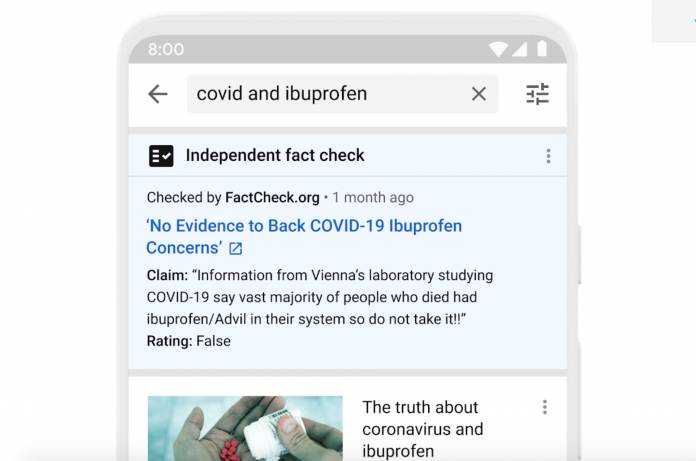
A lot of people want to stay informed about the coronavirus and its effects on the world but there are also a lot of people that may be peddling misleading and sometimes dangerous information. Google has been taking a lot of steps to help people sift through all that and lead people to the “right” kind of news and content to consume through fact checks, advisories, etc. Now the fact-checking information panels are finally coming to YouTube users in the U.S.
This YouTube feature was actually launched in Brazil and India last year but now they’re finally bringing it to users in the U.S. They said that because of the rising number of misinformation about COVID-19, they decided to expand the feature to the U.S. as it is a bit difficult now for people to keep up with the “rapidly changing news cycle”. They are leveraging on the ClaimReview tagging system and on the open network of third-party publishers on the platform.
What will happen is if you search for something on YouTube, an information panel will show up at the top of the search results, highlighting the relevant, fact-checked article so that you can make an informed decision whether or not to watch the video and believe in the “claims” of that content or to find out more about it through independent but relevant third-party publishers.
They will not necessarily delete the misinformed or questionable video but give you the tools to decide on your own.
If you use generic search terms, a fact-check panel may not appear. It will only be there for specific claims, among other factors, and if there is a relevant article from an eligible publisher. U.S. publishers are encouraged to participate as long as they follow the ClaimReview standards or they are a signatory of the International Fact-Checking Network’s (IFCN) Code of Principles or if you’re considered an “authoritative publisher”.
The rollout of the fact-check information panels will not be as immediate as it will take some time for their systems to ramp up. They are also planning to roll this out to more countries soon and hopefully it will be really soon to help people understand which are reliable information and which are not so factual and may be considered fake news or unproven claims.









